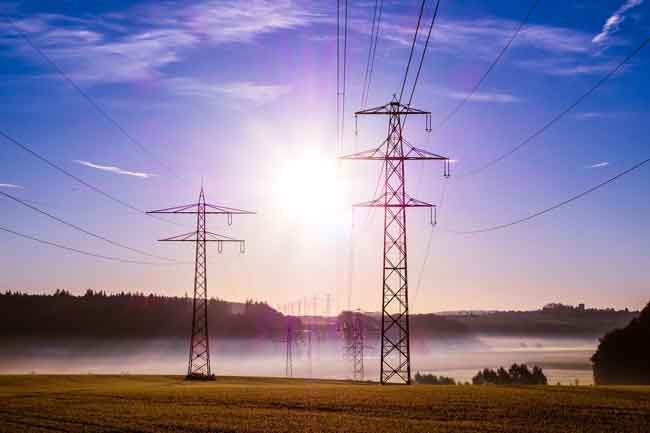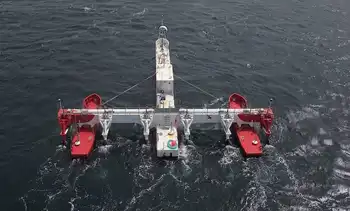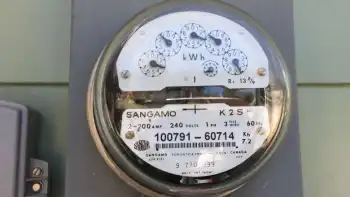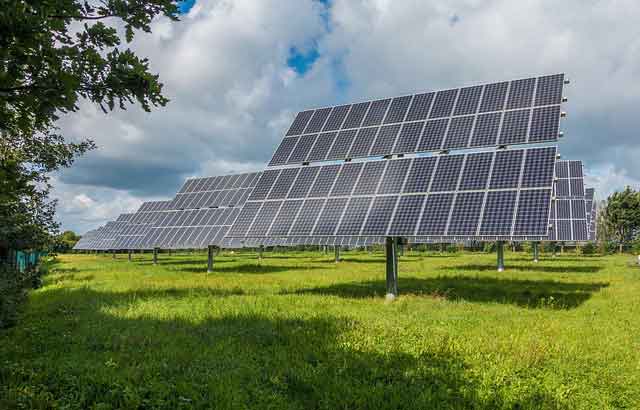Nuclear seeing a revival around the world
Now, like many countries across Europe, it is changing its mind. Last month, the government proposed allowing the construction of new reactors to replace the country's aging ones, which provide nearly half of the nation's electricity.
Swedes have made their peace with nuclear plants, not only because memories have faded and safety records improved after 30 years, but because reactors are seen as one of the few options available to nations wanting to rapidly slash greenhouse gas emissions.
"People shout about wind power but it's only providing 2 percent" of Sweden's electricity, said Ake Hjort, a Swedish energy engineer. "To replace one nuclear plant you need 5,000 to 6,000 windmills. For us, it's not a question of wind power or nuclear power, but the proper mix."
As the Obama administration and other governments around the world look for ways to reduce dependence on imported fossil fuels and cut greenhouse gas emissions, nuclear power is enjoying a revival, even among some of its toughest critics. And some nations where green movements once railed against nukes now are at the forefront of finding solutions to lingering problems such as long-term storage of radioactive waste.
The United States, which has more than 100 working reactors — the world's largest number — has 32 new plants either planned or proposed. China, in an effort to cut air pollution from coal plants and feed huge new demand for power, is building 11 reactors and laying plans for nearly 100 others.
Europe, which has focused heavily on building renewable energy capacity to cut greenhouse gas emissions, now acknowledges that meeting its tough targets will be nearly impossible without new nuclear plants.
"It's the only large-scale... technology we have for zero emission power," said Ian Cronshaw, head of energy diversification for the Paris-based International Energy Agency.
Enthusiasm for nuclear power is coming from some remarkable quarters. Italy, which shut down its last two nuclear plants after the Chernobyl nuclear disaster in 1986, now plans to build eight to 10 new reactors to cut its heavy reliance on imported energy. Finland and Sweden are both well on the way to building long-term nuclear waste storage facilities.
Even oil-producing nations such as Venezuela and the United Arab Emirates are among more than 40 new nations interested in acquiring nuclear power.
The two energy giants, like Russia, "want to sell their oil and gas at nice prices to people hooked on it and not use too much domestically," said Steve Kidd, director of strategy and research for the World Nuclear Association, a London-based nuclear power lobbying group.
President Barack Obama, while promising to "safely harness nuclear power" as part of the U.S. energy mix, has so far shown more enthusiasm for renewable power than nuclear plants. His energy secretary recently confirmed that a 27-year effort to build a national nuclear waste depository at Yucca Mountain in Nevada is being abandoned, leaving unanswered for now how the country will deal with long-term disposal of its highly radioactive nuclear waste.
Britain's government, which five years ago held a similarly skeptical view of nuclear power, "today realizes renewables can't do everything," Kidd said. With production from Britain's aging gas fields dropping by about 8 percent a year, the country now plans to use up to six new reactors to make up some of the shortfall, Cronshaw said.
Europe's interest in nuclear power has surged since January, when Russia cut off natural gas supplies to much of the region in a pricing dispute with Ukraine. Shivering Bulgarians and anxious leaders from Italy to Turkey suddenly looked with envy at France, which as Europe's nuclear leader gets 77 percent of its electricity from reactors and was relatively unaffected by the standoff.
In the United States, which has abundant supplies of coal, the push to build nuclear plants has been driven largely by their profitability, particularly before the recent fall in oil prices. Since 1985, the U.S. government has offered financial incentives for construction of reactors.
Waning opposition to nuclear power also has played a role in the technology's revival. A variety of Europe's mainstream environmental groups now acknowledge "there isn't much option (to nuclear power) if you want to deal with climate change," said Dieter Helm, an economist and European energy expert at Oxford University.
A survey by the European Commission last summer found growing public support for nuclear power across swathes of Europe. But 39 percent of the remaining nuclear opponents said they would change their minds only if a safe, long-term waste disposal solution could be found.
Whether the more than 400 reactors now proposed or planned worldwide are ever built remains in considerable doubt, despite fading memories of Chernobyl and Three Mile Island and an improved industry safety record, nuclear experts say.
Nuclear power plants are more expensive than most fossil-fuel alternatives, and finding financing for them will prove difficult as the world grapples with widespread recession. With oil prices again relatively low, cash-strapped countries may well opt for much-cheaper natural gas plants to meet demand in coming decades until renewable energy can be scaled up, Cronshaw said.
Long-term storage of nuclear waste also remains a serious problem. In Europe, as in the United States, most radioactive waste from nuclear power production is stored at the plants themselves. A typical reactor produces waste only about the size of a small car each year, Kidd said, but keeping highly radioactive waste indefinitely at plants is hardly an ideal solution, experts say. Finland and Sweden, the only countries in the world to be closing in on a long-term solution for high-level nuclear waste, plan to put theirs in underground bedrock tunnels but are still grappling with issues of the long-term security of the material, which will remain radioactive for a hundred thousand years.
France manages its own nuclear waste problem in part by reprocessing spent fuel, which produces new useable uranium but also, controversially, the plutonium needed for nuclear weapons.
Nuclear proliferation is a growing worry as the list of countries eager to build nuclear power plants — including Iran and North Korea — keeps expanding.
"The prospect of 50 more nuclear countries by 2030, some in politically unstable parts of the world, makes some people concerned," Kidd acknowledged.
Related News

Hungary's Quiet Alliance with Russia in Europe's Energy Landscape
MOSCOW - Hungary's energy policies have positioned it as a notable outlier within the European Union, particularly in the context of the ongoing geopolitical tensions stemming from Russia's invasion of Ukraine. While the EU has been actively working to reduce its dependence on Russian energy sources, Hungary has maintained and even strengthened its energy ties with Moscow, raising concerns about EU unity and the effectiveness of sanctions.
Strategic Energy Dependence
Hungary's energy infrastructure is heavily reliant on Russian supplies. Approximately 85% of Hungary's natural gas and more than 60% of its oil imports originate from Russia. This dependence is facilitated…





